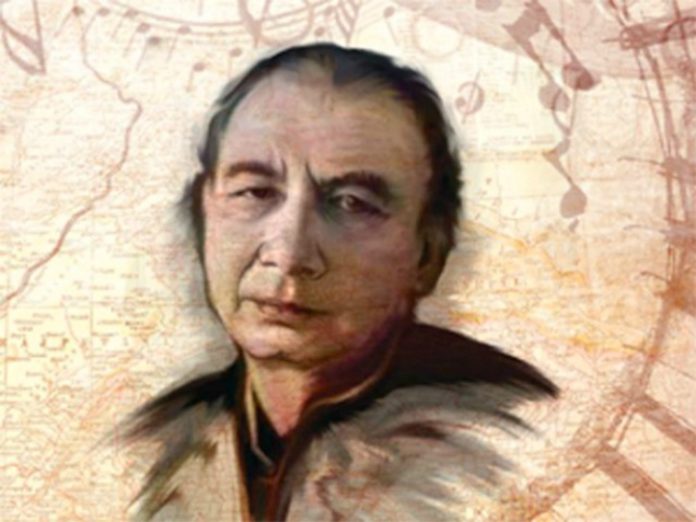By Tirthankar Mitra
Come winter, a season of mellow fruitfulness, Kolkata springs up pleasant surprises. A three day festival on Sahir Ludhianvi, whose lines of love and protest are still hummed began on December 15 at Dhana Dhanyo stadium.
Tributes are paid to an individual’s memory usually on his/her birth anniversary or the day he had passed away. Though today does not qualify on either count, every day of the year is a celebration of a man who was born Abdul Hayee but renamed himself Sahir Ludhianvi having penned verses in 122 films and 500 songs.
Born in Ludhiana in undivided India, Sahir became the numero uno poet and lyricist of his time. He could write with same empathy about secularism (Tu Hindu Banega Na Musalman Banega….) and ideology going astray in independent India (Jinhe Naaj Hain Hind Par Who Kahan Hain….)
Sahir’s command over Urdu and his ability to argue on both sides of an issue if need be, was soon noticed. Already a member of the Progressive Writers Movement, as an editor of progressive Urdu periodicals like Shaahkar, of Savera and Pritlari his free and bold writing cutting both sides shot up circulation but Pakistani government of the day was rubbed the wrong way by his barbs against Partition and the loss of solidarity between the Hindus, .Muslims and Sikhs.
Sahir decided to move to what was then Bombay where he was no stranger as his book of poems Talkhiyan had already cemented his reputation. Having already written extensively on the bitterness of life and love, he was in his element penning lyrics. Never bereft of friends like Ismat Chugtai, Krishan Chander, Kaifi Azmi and others from the IPTA, Sahir made his debut in the film Azadi Ki Rah Par (1949). He never had to look back.
If Baazi, Pyassa came in quick succession were a forerunner of a brilliant career as a lyricist, he was no flash in the pan type. Gumrah, Gazal, Dhoolka Phool, Kabhie Kabhie to name a few are pointers to this fact.
Sahir was not as prolific as some of his peers. But whatever he wrote was gold standard. Lines of love from Sahir’s pen always carried a hint of sadness. For the man whose name was associated with poet Amrita Pritam and singer Sudha Malhotra knew there cannot be perfect love.
For Sahir was only too aware happy endings sometimes linger onto sadness.. Such is life and the poet has to accept it too. There exists a sweet spot between blissful union and agony of separation. Penning Chalo Ek Bar Phirse Ajnabi Ban Jaye Hum Dono, Sahir sought to give an expression to it.
The timelessness of his lines deploring the departure of one who takes pride on Hindustan in the film Pyasa, would have landed him in trouble had he penned it now. The inequalities and poverty he wrote about then still very much exists.
Sahir’s search for people who have found love reciprocated continues. There are many fellow travellers. His lines about humanity ring true. For they are the cornerstone of an egalitarian society Sahir and his fellow travellers sought to build.
..
Possessing a fine mind which nurtured a different thought process, Sahir’s take on Taj Mahal, a paen to love in marble travelled a path less travelled. To him, it was a statement on the rich and poor divide as he wrote “Mere mehboob kahin aur milakar mujhse” as in the film Gazal..
Kudos to Sahir Ludhianvi Genius Global Research Council , West Bengal Urdu Academy for organising Sahirki Sahiri. A champion of the cause of the working class, whose lines bring out the happiness, pain and love richly deserves it. Sahir, according to film lore had asked for one rupee more than what the producers were paying Lata Mangeshkar, the Nightingale of India. Here was a poet who did not lack guts. (IPA )


